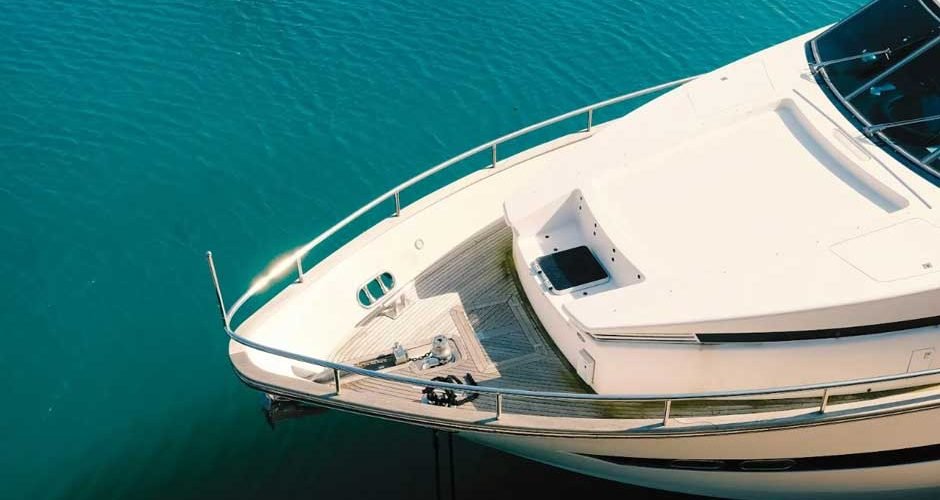Purchasing a yacht requires working with a broker who understands both the market and marine operations. A reputable professional protects buyers from costly mistakes while ensuring fair market value.
Table of Contents
5 Essential Qualities of a Reliable Yacht Broker
Not all brokers offer equal service quality or market knowledge. Choosing the right broker makes the difference between a smooth purchase and a regrettable decision. These non-negotiable qualities separate true professionals from order-takers.
Industry Certifications
Proper credentials demonstrate professional commitment and knowledge.
- CYBA (Canadian Yacht Brokers Association) membership: Requires adherence to strict ethical standards and continuing education
- Manufacturer training credentials: Shows specialized knowledge of specific yacht brands and systems
- Transport Canada compliance: Ensures all transactions meet federal marine regulations
Local Market Expertise
Vancouver’s yacht market has unique characteristics that outsiders often miss.
- Knowledge of regional pricing trends: Understands how location affects values in BC versus other markets
- Familiarity with West Coast marinas: Can advise on best moorage options and seasonal availability
- Understanding of Canadian import regulations: Crucial for buyers considering vessels from US or international markets
Transparent Operations
Honest brokers have nothing to hide about their business practices.
- Clear commission structures: Typically 10% but always stated upfront in writing
- No hidden fees: All charges disclosed before viewings begin
- Full disclosure of vessel history: Provides complete maintenance records and incident reports
Technical Knowledge
The best brokers understand what they’re selling beyond just aesthetics.
- Ability to explain mechanical systems: Can discuss engine specs, stabilization, and electrical systems knowledgeably
- Understanding of survey reports: Helps interpret findings and negotiate repairs
- Familiarity with maintenance requirements: Advises on expected servicing costs for different yacht types
After-Sale Support
The relationship shouldn’t end when the papers are signed.
- Assistance with registration: Helps navigate Transport Canada paperwork and flagging options
- Crew recruitment help: Connects buyers with reputable staffing agencies if needed
- Maintenance referrals: Recommends trusted service providers for ongoing upkeep
The right broker becomes a long-term asset, often assisting with future upgrades or sales. Their expertise pays for itself through better deals, smoother transactions, and ongoing support.
Red Flags When Selecting a Yacht Broker
Choosing the wrong broker can turn your dream purchase into a nightmare. Watch for these warning signs that signal potential problems.
Pressure to Buy Quickly
Ethical brokers understand this is a major investment requiring careful consideration.
- “Today only” pricing offers: Legitimate yachts don’t need high-pressure sales tactics
- Discouraging surveys or sea trials: Any resistance to inspections suggests something to hide
- Claiming multiple interested buyers: While possible, this often proves exaggerated upon verification
Vague About Fees
Transparent brokers provide complete written fee structures upfront.
- Undisclosed commission percentages: Standard is 10%, but must be clearly stated in writing
- Hidden “administrative” charges: All fees should appear in initial engagement letters
- Changing cost estimates: Quotes shouldn’t fluctuate without valid reasons
Limited References
Established brokers maintain long-term client relationships they can verify.
- Unable to provide recent client contacts: Current references should be readily available
- No repeat business history: Quality brokers have clients who use them for multiple purchases
- Negative industry reputation: Check yacht forums and marina gossip for consistent complaints
Additional Warning Signs
Other problematic behaviors worth noting:
- Lack of specialization: “Jack of all trades” brokers often lack necessary expertise
- Poor communication: Delayed responses or confusing explanations raise concerns
- Limited geographic knowledge: Vancouver-specific brokers understand local market nuances
Why These Matter
Overlooking these red flags can lead to:
- Purchasing unsuitable vessels
- Paying above-market prices
- Inheriting undisclosed mechanical issues
- Facing unexpected costs
The Broker’s Role in Yacht Transactions
A professional broker handles more than just paperwork – they’re your advocate throughout the entire purchase process. Experienced brokers prevent costly mistakes while saving buyers time and frustration.
Pre-Purchase Guidance
Before viewing a single yacht, brokers establish critical purchase parameters. They help clients avoid emotional decisions that lead to buyer’s remorse.
- Realistic budget assessment: Brokers analyze total ownership costs, including maintenance, moorage, and crew requirements, to determine what buyers can truly afford.
- Needs analysis: Through detailed questioning, they identify must-have features versus nice-to-have amenities based on intended use.
- Market education: They explain current inventory levels, pricing trends, and how seasonal factors affect availability in Vancouver.
Vessel Selection
Brokers leverage industry connections to find yachts that match exact specifications, including unlisted opportunities.
- Access to off-market listings: Many premium yachts sell through broker networks before ever appearing on public listings.
- Comparative analysis: They provide side-by-side comparisons of similar models, highlighting maintenance histories and refit advantages.
- Viewing coordination: Brokers schedule efficient showings, often arranging multiple viewings in different locations on the same day.
Negotiation Process
Skilled brokers protect buyers while facilitating fair deals between parties.
- Market valuation: They pull recent sales data to establish fair pricing benchmarks for specific makes and models.
- Offer strategy: Brokers advise on initial offers, escalation clauses, and when to walk away from negotiations.
- Contingency planning: They build inspection periods and financing clauses into offers as protection for buyers.
Closing Procedures
The final transaction phase requires meticulous attention to detail.
- Survey coordination: Brokers recommend accredited marine surveyors and attend inspections to represent buyer interests.
- Sea trial management: They ensure proper testing of all systems under real operating conditions before finalizing the purchase.
- Documentation handling: From bill of sale to registration, brokers verify all paperwork meets Transport Canada requirements.
This comprehensive support continues post-sale, with many brokers assisting in crew recruitment and maintenance planning. Their involvement often makes the difference between a smooth purchase and a problematic transaction.
Why Canadian Buyers Need Local Brokers
International brokers often lack critical regional knowledge.
Key Local Advantages:
- Understanding of Canadian tax implications
- Relationships with Transport Canada officials
- Knowledge of seasonal market fluctuations
- Familiarity with regional surveyors
Questions to Ask Potential Brokers
Vetting questions that separate professionals from amateurs.
- “How many similar vessels have you sold in the past year?”
- “Can you provide three recent client references?”
- “What’s your process for handling survey negotiations?”
- “How do you determine fair market value?”
- “What after-sale services do you provide?”
The Cost of Using an Inexperienced Broker
Mistakes in yacht transactions carry serious consequences.
Potential Risks:
- Overpaying by 15-30%
- Missing critical defects
- Improper documentation
- Lengthy closing delays
How Ignition Marine Excels as a Canadian Yacht Broker
This established firm demonstrates all hallmarks of excellence.
Proven Differentiators:
- CYBA-certified professionals
- Decades of West Coast experience
- Comprehensive buyer advocacy
- Manufacturer-direct relationships
The Smart Buyer’s Checklist
Follow this process for optimal results.
Verify Credentials
Check CYBA membership and certifications
Review Track Record
Examine recent sales of similar vessels
Interview Multiple Brokers
Compare approaches and market knowledge
Understand the Agreement
Review representation terms carefully
Plan for After-Sale
Confirm available support services
When to Walk Away from a Broker
Recognizing bad situations prevents costly mistakes.
Terminate the Relationship If:
- Pressure to skip surveys
- Unwillingness to provide references
- Lack of local market knowledge
- Poor communication practices
The Value of Professional Representation
Quality brokers earn their commission through savings and protection.
Tangible Benefits:
- Average 10-15% purchase price savings
- Access to better inventory
- Smoother closing process
- Long-term ownership support
Taking the Next Steps
Serious buyers should begin with professional guidance. To connect with a trusted yacht broker in Canada, contact established firms with proven track records. The right broker doesn’t just facilitate a sale; they ensure years of enjoyable ownership.





